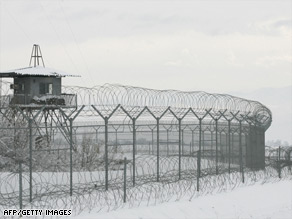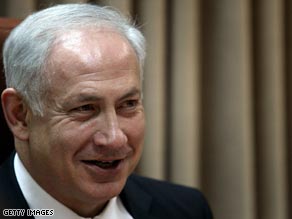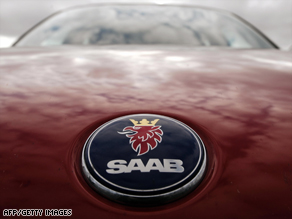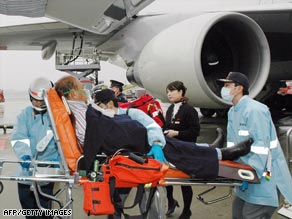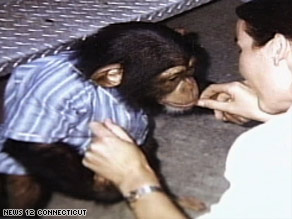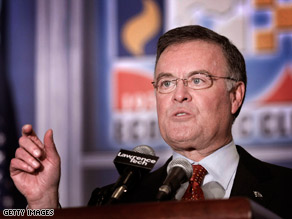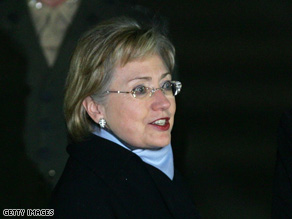
There is an old Chinese proverb that says to attract good fortune, spend a new penny on an old friend. On Friday, an old friend is due to come calling in China. Pakistan’s President Asif Zardari will make his second visit to China in four months for meetings with senior political and business leaders. A key ally in the U.S.-led “War on Terror,” Pakistan — desperate for money and in need of a good friend — has recently found itself beckoning China for rescue. But is China willing to invest its pennies in Pakistan, much less play superhero for an old but now problematic ally?
Once an “all-weather friend,” China stood with Pakistan during its old confrontations with India. Ties between the two countries date back to 1950 after Pakistan joined a small handful of nations in recognizing the communist People’s Republic of China. In 1962, war broke out between China and India over the disputed Himalayan border region, further aligning China and Pakistan in the name of a common enmity toward India. Since then, Beijing has often offered its support to Islamabad in the way of economic assistance, but also with no-strings-attached military aid and support to Pakistan’s nuclear program.
Although China has not signed an official nuclear agreement similar to the civilian nuclear pact between the U.S. and India, it has invested heavily in the construction of several nuclear power plants in Pakistan. Unlike its relationship with the U.S, Pakistan’s agreements with China seldom came with conditions. “The U.S. hasn’t offered to support nuclear projects with Pakistan, so we go to China where we know we are always very warmly welcomed,” says Muhammad Saleem Mazhar, director of the Center for South Asian Studies at the University of Punjab in Lahore. Various Chinese-funded projects are also currently underway to boost Pakistan’s infrastructure, including the development of a port on the Strait of Hormuz at Gwadar.
However, with Pakistan’s security situation growing increasingly volatile and economic conditions turning dire, there may be a turn in tide between these once intimate friends. “The situation is much different now than once upon a time,” says William Kirby, T. M. Chang Professor of China Studies at Harvard University. “India has emerged as a much more powerful force in the region and Pakistan has not succeeded in the way that hopeful and loyal supporters had once imagined. It is now one of the great security risks in the region.”
Instead of increasing assistance to its old ally, Beijing has apparently been keeping a distance from Islamabad. During Zardari’s visit in October, the Chinese snubbed the Pakistani President’s request for a full-blown economic bailout. While Beijing did grant Islamabad a soft loan last year worth $500 million, it was nowhere near the estimated $14 billion experts say is needed to get Pakistan back on its feet. “The cooperation we saw during the Musharraf era just isn’t there anymore,” says Sayem Ali, an economist with Standard Chartered Bank in Karachi. “China would rather develop better relations with India and the U.S., which is not great news for Pakistan because it has always relied on China’s help.”
The recent instability along Pakistan’s Western border with Afghanistan, as well as a series of abductions of Chinese nationals, could lead China to look elsewhere for more reliable friends in the region — allies who can at least guarantee some sort of stability for China to pursue its strategic and economic interests. “Pakistan today needs China more than China needs Pakistan — that is why there is more enthusiasm in Pakistan about its relations with China than vice-versa,” says Shabbir Cheema, director of the Asia-Pacific Governance and Democracy Initiative.
China, however, cannot afford to turn a blind eye to a nuclear-powered Pakistan that seems to be constantly teetering on chaos. For one, Uighur separatists in China’s Xinjiang province often find inspiration and support in the turmoil in Afghanistan, a conflict entangled in the politics of Pakistan’s tumultuous North-Western Frontier Province. “We are now looking at a situation where China and India are on their way to becoming global powers and Pakistan is really in a position of endemic crisis,” says Kirby. “China can longer afford to make any unconditional guarantees — particularly where Pakistan is concerned.”
Chinese nationals in Pakistan are in as much danger as other foreigners. In the aftermath of a tentative cease-fire between Pakistan and Taliban radicals in the beleaguered Swat Valley, militants there released Long Xiaowei, a Chinese engineer abducted six months ago — an incident that drew unusually forceful language from Beijing.
Pakistan’s troubles, however, are likely to keep China involved in keeping its old ally afloat. Ahmed Ejaz, an expert on Asian security at the University of Punjab, believes that for China, the stakes are far too great for it to turn its back on Pakistan. “An unstable Pakistan will lead to an unstable China,” says Ejaz. “They know this so they will never leave us alone.”
Read “Why Pakistan Matters”
